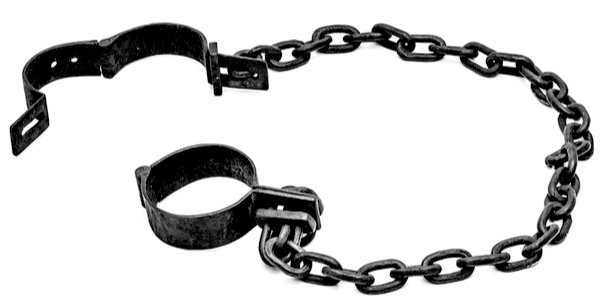ARABS AND AFRICANS WERE SLAVE TRADERS TOO
by Michael McManus, June 15, 2020

ON March 8, 1661, Samuel Pepys spent a London afternoon drinking with a group of sea captains in the Fleece Tavern. He heard first hand of life as a slave in Algiers, the centre of North African slave trading at the time. Captain Mootham and Mr Dawes had been slaves and 'did make me fully acquainted with their condition there; as how they eat nothing but bread and water'. When they were ransomed they were even made to pay for the water they had drunk. They told him of the cruelties they had endured since being taken from their ships: 'How they were beaten on the soles of their feet and bellies at the liberty of their padron' (owner). During the day they worked and at night were 'called into their master's bagnard (prison cell) and there they lie'. Some slaves were set to work as thieves, a job they said was less arduous than most: in Algiers, 'theft is counted as no crime at all'. Pepys concluded his diary entry for that day by saying that he went to bed with his head 'acheing', as well it might.
Estimates of the number of Europeans taken in what became known as the White Slave Trade range as high as 4 million during the 16th, 17th and 18th centuries. Most were fishermen and sailors taken from merchant ships of all nations with others seized from coastal villages in Italy, Spain, Ireland, England's south coast and even Iceland. Non-Muslim slaves were a valuable commodity, the Koran forbidding the enslavement of Muslims. So, in land raids, the entire population, men, women and children, would be taken. Most slavers operated from Algiers, Tunis, Tripoli and Morocco.
Those with family wealth, like the captains Pepys met, would be held for ransom. The unlucky ordinary seamen and villagers would be sold into servitude and never seen again. Converting to Islam, often forced as today, might have seemed an escape route but the downside was that servitude if not slavery continued. Leaving the former master's employment was haram, forbidden by Islamic law. In an echo of the criminals and low-lifes who left Europe to join Islamic State, many of the pirates were opportunists who had exchanged Christianity for Islam and a life of crime and depravity. In Pepys's time, these numbered in the thousands.
Around 700 American sailors and sea passengers were held as late as the early 19th century, and that turned out to be the last straw. The new republic, having seen off the unbeatable British, was in no mood to tolerate pirates. A few years after independence President Jefferson even travelled to London to meet North African diplomats to demand an end to the pillaging of American merchantmen. He was informed that the Koran gave Muslims the right to treat infidels as they wished, and that included enslaving them. What Jefferson replied to that is not known. Actions not words followed, but not before the US and Europe tried to buy peace by making payments to the pirates analogous to the jizya taxes levied on Jews under Muslim rule.
In the first years of the 19th century the USA launched its first overseas military adventure and sleepy European states such as Britain, Holland and Sweden, which are estimated to have lost ships by the thousand, followed the lead. North African ports were relentlessly bombarded until the Arabs came to terms. When France colonised Algeria in the 1830s the attacks came to an end.
African slave traders operated even before Islam gave them a scriptural boost. The Romans made use of them. Slavery was never imposed on Africa. Travel into the interior, essential for slave raids, was impossible. African rivers, beset by rapids, were not navigable. When Europeans landed on African coasts they found a flourishing and profitable trade but could not have engaged in it had Africans not been eager to sell their own people. That Christian Europeans engaged in the trade indicates the weakness of moral teaching or the inability of moral precepts to root and flourish in barren human soil. Even the highly principled Adam Smith, opposed to slavery, thought the only way to halt it was to show it to be uneconomic: the capital cost, the need to feed, clothe, house and preserve the health of people who might be replaced by workers on wages responsible for their own care. Even then, Smith was pessimistic and thought slavery would always be with us. Perhaps, in various guises, it still is, but the first step towards reconciliation is to accept evidence and truth. We are all sinners on this earth and the African and Islamic worlds must join us in expressing regret for the past.
This article was published by the
Conservative Woman of the United Kingdom and is archived at
https://www.conservativewoman.co.uk/arabs-and-africans-were-slave-traders-too/.
ConservativeWoman.co.uk is totally run by volunteers; donations can be made to:
https://www.conservativewoman.co.uk/campaigns/donate-to-the-conservative-woman/donate/.
It is archived at Think-Israel at
http://www.think-israel.org/mcmanus.slavetraders.html